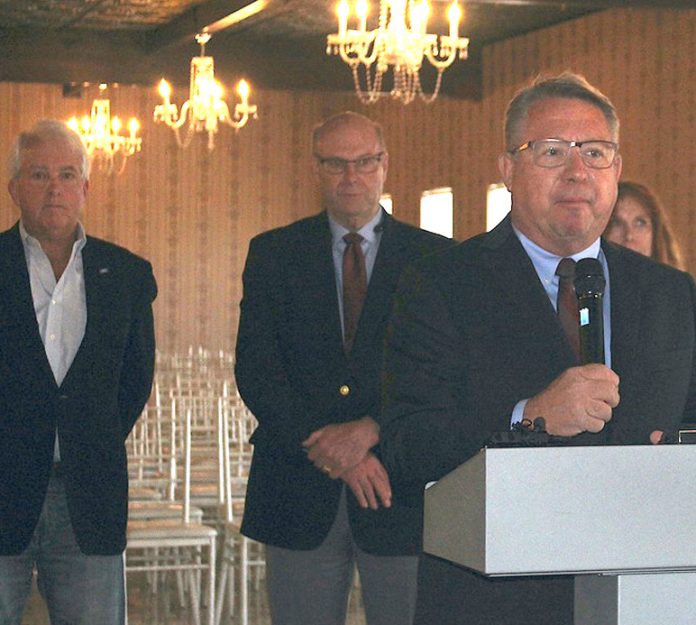
Non-profit California Constitutional Rights Foundation on Tuesday announced they are filing a federal lawsuit against California State Governor Gavin Newsom, the county of San Diego and the city of San Diego on behalf of more than 40 businesses and individuals located in San Diego County.
The lawsuit challenges whether the California state emergency proclamation declared by Newsom on March 19, 2020 to slow the spread of the COVID-19 pandemic met the statutory threshold for declaring a state of emergency.
Additionally, the lawsuit argues for the termination of the state of emergency and alleges it violates the First, Fifth, and Fourteenth Amendments and Article one of the United States Constitution, as well as several sections of California State Government code.
California Constitutional Rights Foundation Attorney Gary Kreep, who will represent the case, said it is similar to three others the foundation already filed by retired Justice Steve Bailey in Nevada County, Mono County and Placer County.
“This fourth case is critical litigation that sends a message to Governor Newsom: reopen California, now,” Bailey said.
Reopen San Diego Small Business Coalition Chairwoman and Pine Valley House restaurant owner Nica Knite said the group is pursuing the lawsuit “so ongoing negative impacts cease, so that no further violations of constitutional rights will be visited upon us in the future, and so that all impacted California businesses and citizens will experience relief” by seeking legal action.
As “the lone liberal up here,” Knite said she initially believed temporarily closing businesses might help slow the spread of the pandemic and has no problem with every citizen being asked to sacrifice for the greater good but takes issue with the government mandating small businesses close while allowing large chains to remain open.
El Cajon Mayor Bill Wells, who spoke at the announcement event said one of the things that has bothered him from the beginning of the lockdown is it seems to favor big, conglomerate stores over locally run, smaller businesses.
“You saw profits going up exponentially at those large stores while others were unable to survive,” Wells said.
Knite said classifying which stores could or could not stay open, and allowing ‘big box’ operators to not only survive but thrive is at the root of the problem: she and the other plaintiffs believe they have been denied equitable treatment under the law.
Cafe La Maze, On the Rocks and Mr. D’s Cocktail Lounge owner Christos Kapetanios, one of three small business owners at the event, said he has about 40 employees between two bars in Chula Vista and the restaurant in National City.
“We’ve been in business since 1941, just celebrated our 80th anniversary and realized with months of closures we’d either need to turn in the keys and lock up for the last time or fight for our employees. We decided to fight,” Kapetanios said.
Customers, he said, can decide whether they want to place a takeout order or dine at the restaurant, which offers outdoor seating.
“People have options to dine in or take their order to go— we’ve not had a single breakout. If Costco can stay open, why should we close?”Kapetanios asked.
Even after having to lay off some of her staff, Knite said she believed she “was doing this for her fellow man” but realized she was being ordered to close and sacrifice jobs in a small community while large corporations remained open.
“I stand here with my fellow Americans regardless of political affiliation and say we are doing this because you cannot make rules that are arbitrary and capricious. The Constitution is there to protect us all,” Knite said.













